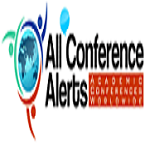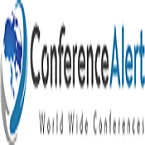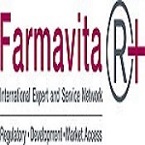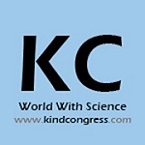About Conference
Welcome to the 16th World Congress on Breast Cancer Scheduled during June 22-23, 2026 in Dubai, UAE.
Theme: Worldwide Insights into Breast Cancer Research and Treatment
The 16th World Congress on Breast Cancer promises to bring together leading minds in the fight against breast cancer to discuss cutting-edge research, share innovative treatments, and foster global collaborations. Following the success of previous editions, this congress will serve as a multidisciplinary platform for researchers, clinicians, policymakers, educators, and students alike.
Why Attend Breast Cancer 2026?
This year's theme reflects the forward-thinking and transformative approach required to tackle breast cancer challenges in the modern era. The congress will cover a diverse range of topics, including:
-
Advancements in early detection and diagnosis
-
Breakthroughs in treatment strategies and personalized medicine
-
Emerging technologies in radiation therapy
-
Innovations in reconstructive surgery and supportive care
Our comprehensive program includes keynote presentations by global experts, in-depth panel discussions, interactive workshops, and poster sessions showcasing the latest advancements.
Exceptional Highlights
-
CME-Accredited Certification
-
Publication Opportunities: All accepted abstracts will receive DOIs and be featured in conference proceedings and indexed journals.
-
Networking Excellence: Connect with professionals from academia, industry, and healthcare sectors.
-
Global Recognition: Certificates of Participation accredited by the International Organizing Committee.
Who Should Attend?
The congress welcomes a broad audience, including:
-
Breast cancer surgeons, pathologists, and radiologists
-
Radiation oncologists and therapists
-
Medical oncologists and reconstructive surgeons
-
Breast care nurses, researchers, and educators
-
Policy-makers, healthcare associations, and students
Be Part of the Change
Join us in Vancouver, a city known for its vibrant culture and breathtaking scenery, as we work together to shape the future of breast cancer care. Your participation is essential to the success of this event, driving impactful discussions and innovative solutions that will make a difference in millions of lives.
Save the dates and stay tuned for further announcements!
Sessions & Tracks
Track 1: Breast Cancer Staging
Breast cancer staging is essential to determine the extent of cancer in the body, guiding treatment decisions like chemotherapy, hormone therapy, and targeted drugs. Both medical and pathologic staging systems are utilized, with tissue samples from surgery often providing the most accurate results. In cases where surgery isn’t feasible, clinical staging is employed. Imaging technologies like CT scans, MRIs, ultrasounds, and PET scans help identify cancer's spread, while the TNM system categorizes tumors, nodes, and metastases.
Related Associations: British Association of Breast Cancer Surgeons | Society of Breast Cancer Surgeons of the Netherlands | German Breast Cancer Association | Asian Association of Breast Cancer Surgeons | The Pacific Association of Breast Cancer Surgeons
Track 2: Breast Cancer Types and Etiology
Breast cancer includes several types: Ductal Carcinoma In Situ (DCIS), a non-invasive form; Invasive Ductal Carcinoma (IDC), the most common and aggressive; Invasive Lobular Carcinoma (ILC), starting in milk glands; and rarer forms like Inflammatory Breast Cancer (IBC), Medullary, Mucinous, and Tubular Carcinoma. Its etiology includes genetic factors (BRCA mutations), hormonal influences, family history, age, and lifestyle choices (e.g., alcohol, obesity). Environmental exposures and radiation also increase the risk, with early menstruation and hormone replacement therapy contributing to higher susceptibility.
Related Associations: Association of Surgeons of the Netherlands | Society of Residents in Surgery of the Netherlands | European Society for Breast Cancer Research | Asian Surgical Association | Asia Pacific Spine Society | Japanese Society of Breast Cancer Surgery | American Society of Breast Oncology/Haematology | Mexican Board of Breast Cancer Canadian Society
Track 3: Breast Cancer Awareness
Breast cancer awareness plays a vital role in educating the public about early detection, symptoms, and available treatments. The “pink ribbon” movement advocates for women's health, funds research, and combats the stigma surrounding breast cancer. Increased awareness can also drive support for environmental causes, with research suggesting pollution as a potential contributor to cancer rates.
Related Associations: European Breast Cancer surgeons Association | The Pacific Association of Breast Cancer Surgeons (PABCS) | Israeli Breast Cancer Nursing Society | American Breast Cancer Surgical Association | Breast Cancer Trauma Society | American Academy of Breast Cancer | Breast Cancer Society | Society of Breast Dermatology
Track 4: Breast Cancer Detection, Prevention, and Diagnosis
Early detection saves lives, and routine screening methods such as mammograms, clinical breast exams, and self-exams are essential. Family history plays a significant role in determining risk, and individuals should consult healthcare providers for personalized screening recommendations. Imaging advancements, including 3D mammography and ultrasounds, have improved the detection of tumors and lumps, leading to earlier diagnosis.
Related Associations: British Association of Breast Cancer Surgeons | Society of Breast Cancer Surgeons of the Netherlands | German Breast Cancer Association | Asian Association of Breast Cancer Surgeons | The Pacific Association of Breast Cancer Surgeons | Asian Australasian Society of Breast Cancer Surgeons (AASBCS)
Track 5: Breast Cancer Risk
Age and genetics are the primary factors influencing breast cancer risk, with the majority of cases occurring in women over 50. Hereditary conditions such as BRCA1 and BRCA2 mutations increase the risk, and environmental factors, including lifestyle choices and occupational exposures, also play a part. Understanding these factors can help individuals take proactive steps to reduce risk and undergo regular screenings.
Related Associations: Association of Surgeons of the Netherlands | Society of Residents in Surgery of the Netherlands | European Society for Breast Cancer Research | Asian Surgical Association | Asia Pacific Spine Society | Japanese Society of Breast Cancer Surgery
Track 6: Breast Cancer Surgery
Surgical treatment is a common part of breast cancer care, with procedures ranging from lumpectomies (breast-conserving surgery) to mastectomies. Biopsies and lymph node dissection help determine whether the cancer has spread. Post-surgery, breast reconstruction is available to restore the breast's appearance, though some patients opt for prostheses instead.
Related Associations: European Breast Cancer surgeons Association | The Pacific Association of Breast Cancer Surgeons (PABCS) | Israeli Breast Cancer Nursing Society | American Breast Cancer Surgical Association | Breast Cancer Trauma Society | American Academy of Breast Cancer | Breast Cancer Society | Society of Breast Dermatology
Track 7: Male Breast Cancer Research
While rare, male breast cancer is an important issue, often diagnosed late due to lack of awareness. Risk factors in men include family history, radiation exposure, and genetic conditions like Klinefelter’s syndrome. Symptoms in men are similar to those in women, and early detection is crucial for better outcomes.
Related Associations: British Association of Breast Cancer Surgeons | Society of Breast Cancer Surgeons of the Netherlands | German Breast Cancer Association | Asian Association of Breast Cancer Surgeons | The Pacific Association of Breast Cancer Surgeons | Asian Australasian Society of Breast Cancer Surgeons (AASBCS)
Track 8: Breast Cancer and Immunology
Immunotherapy has become a key part of breast cancer treatment, helping to improve outcomes in patients with advanced or treatment-resistant cancers. By targeting specific tumor cells, immunotherapy minimizes side effects and provides more personalized treatment options. Research in this field is rapidly evolving, offering new hope to patients.
Related Associations: Association of Surgeons of the Netherlands | Society of Residents in Surgery of the Netherlands | European Society for Breast Cancer Research | Asian Surgical Association | Asia Pacific Spine Society | Japanese Society of Breast Cancer Surgery | American Society of Breast Oncology/Haematology | Mexican Board of Breast Cancer Canadian Society
Track 9: Breast Cancer Management
Breast cancer management typically includes a combination of surgery, chemotherapy, radiotherapy, and targeted therapies. Treatment plans are tailored to the patient's specific cancer type and characteristics. New treatments, like cryoablation, offer alternatives for smaller, early-stage cancers. Reconstructive surgery is an option for those wishing to restore the breast's shape after mastectomy.
Related Associations: European Breast Cancer surgeons Association | The Pacific Association of Breast Cancer Surgeons (PABCS) | Israeli Breast Cancer Nursing Society | American Breast Cancer Surgical Association | Breast Cancer Trauma Society | American Academy of Breast Cancer
Track 10: Breast Cancer Nursing
Nurses are integral to breast cancer treatment, providing care throughout diagnosis, treatment, and recovery. They educate patients about risks, help with symptom management, and advocate for early detection. Nurses also support patients emotionally, addressing the mental health challenges that come with a breast cancer diagnosis.
Related Associations: British Association of Breast Cancer Surgeons | Society of Breast Cancer Surgeons of the Netherlands | German Breast Cancer Association | Asian Association of Breast Cancer Surgeons | The Pacific Association of Breast Cancer Surgeons | Asian Australasian Society of Breast Cancer Surgeons (AASBCS)
Track 11: Radiology
Radiologists specialize in diagnosing breast cancer through imaging techniques like X-rays, CT scans, MRIs, and ultrasounds. Their expertise helps determine the extent of the disease and guides treatment decisions. Radiologic technologists also work closely with patients to ensure the comfort and accuracy of imaging procedures.
Related Associations: Association of Surgeons of the Netherlands | Society of Residents in Surgery of the Netherlands | European Society for Breast Cancer Research | Asian Surgical Association | Asia Pacific Spine Society | Japanese Society of Breast Cancer Surgery
Track 12: Epidemiology of Breast Cancer and Risk Factors
Breast cancer's incidence increases with age, particularly after 50. Factors such as hormonal exposure, genetic mutations, and lifestyle choices like physical inactivity and alcohol use contribute to the risk. Understanding these risk factors is essential for prevention, early detection, and personalized care.
Related Associations: European Breast Cancer surgeons Association | The Pacific Association of Breast Cancer Surgeons (PABCS) | Israeli Breast Cancer Nursing Society | American Breast Cancer Surgical Association | Breast Cancer Trauma Society | American Academy of Breast Cancer | Breast Cancer Society | Society of Breast Dermatology
Track 13: Inflammatory Breast Cancer
Inflammatory breast cancer is a rare but aggressive form of the disease, characterized by rapid swelling, redness, and skin changes. It is often diagnosed at advanced stages, as it typically spreads quickly. Early recognition of symptoms and prompt treatment are crucial for better prognosis.
Related Associations: British Association of Breast Cancer Surgeons | Society of Breast Cancer Surgeons of the Netherlands | German Breast Cancer Association | Asian Association of Breast Cancer Surgeons | The Pacific Association of Breast Cancer Surgeons | Asian Australasian Society of Breast Cancer Surgeons (AASBCS)
Track 14: Mammography
Mammography is a vital screening tool for early breast cancer detection, even in women with no symptoms. Screening mammograms involve taking X-ray images of the breast to identify abnormalities such as microcalcifications, which may indicate cancer. Diagnostic mammograms are used for further investigation if initial screenings reveal any concerns.
Related Associations: Association of Surgeons of the Netherlands | Society of Residents in Surgery of the Netherlands | European Society for Breast Cancer Research | Asian Surgical Association | Asia Pacific Spine Society
Track 15: Diet and Lifestyle Effects on Breast Cancer
A healthy lifestyle, including a balanced diet and regular physical activity, can help reduce breast cancer risk. Smoking, excessive alcohol, and being overweight are linked to higher risk, while breastfeeding, physical activity, and a plant-based diet can offer protection. Hormone replacement therapy and oral contraceptive use may increase the risk.
Related Associations: European Breast Cancer surgeons Association | The Pacific Association of Breast Cancer Surgeons (PABCS) | Israeli Breast Cancer Nursing Society | American Breast Cancer Surgical Association | Breast Cancer Trauma Society | American Academy of Breast Cancer
Track 16: Breast Cancer and Cell Biology
Breast cancer cells are often resistant to treatment due to mutations and abnormal cellular behavior. Membrane transporters play a role in drug resistance, impacting the effectiveness of chemotherapy and targeted therapies. Understanding these biological factors is key to developing new treatments that can overcome resistance and improve patient outcomes.
Related Associations: British Association of Breast Cancer Surgeons | Society of Breast Cancer Surgeons of the Netherlands | German Breast Cancer Association | Asian Association of Breast Cancer Surgeons | The Pacific Association of Breast Cancer Surgeons
Track 17: Breast Cancer Clinical Trials
Clinical trials are critical to advancing breast cancer treatment, testing new drugs, therapies, and combinations. By participating in clinical trials, patients help improve treatment options for future generations. These trials also focus on risk reduction, diagnosis, and new methods of care.
Related Associations: Association of Surgeons of the Netherlands | Society of Residents in Surgery of the Netherlands | European Society for Breast Cancer Research | Asian Surgical Association | Asia Pacific Spine Society
Track 18: Case Studies
Case studies offer detailed insights into individual breast cancer experiences, providing valuable lessons for both patients and healthcare providers. They highlight various factors such as early detection, treatment responses, and recovery challenges, contributing to improved understanding and management of the disease.
Related Associations: European Breast Cancer surgeons Association | The Pacific Association of Breast Cancer Surgeons (PABCS) | Israeli Breast Cancer Nursing Society | American Breast Cancer Surgical Association | Breast Cancer Trauma Society
Market Analysis
In 2024, the global breast cancer therapeutics market continues to grow rapidly, building on its valuation of $34 billion in 2023 and projected to reach $66 billion by 2032, with a steady CAGR of 6.8%. This growth is fueled by an increasing global incidence of breast cancer, coupled with advancements in treatment modalities and rising public awareness through health campaigns?Breast cancer therapeutics can be defined as the treatment or management of breast cancer using therapeutic approach & drugs such as the targeted therapy, chemotherapy, hormonal therapy, and other therapeutics. These therapeutics abduct the growth and multiplication of cancerous cells by disrupting certain proteins or DNA.
Targeted therapies remain at the forefront, dominating over 77% of the therapy segment as of 2023. Drugs like HER2 inhibitors (e.g., trastuzumab) and CDK4/6 inhibitors are highly preferred due to their ability to minimize side effects while significantly improving patient outcomes. Immunotherapies, including checkpoint inhibitors, are also gaining prominence, particularly for aggressive subtypes like triple-negative breast cancer. These therapies are advancing alongside biomarker-driven precision medicine, enabling more personalized approaches to treatment?Moreover, adoption of breast cancer awareness campaigns by public organizations is projected to promote the education regarding breast cancer and breast cancer therapeutics. For instance, the National Breast Cancer Foundation initiated “October as a Breast Cancer Awareness Month”, a campaign to drive awareness concerning the impact of breast cancer. Such initiatives are expected to encourage the diagnosed breast cancer patients to opt for optimal breast cancer therapeutics, further driving the survival rate of breast cancer therapeutics.
Geographically, North America leads the market, supported by advanced healthcare systems, extensive research funding, and a robust pipeline of FDA-approved therapies. In contrast, the Asia-Pacific region is witnessing the fastest growth, attributed to increasing healthcare investments, government-backed screening programs, and greater public awareness. European countries also maintain a significant share due to favorable policies and established healthcare infrastructure?
Public and government initiatives play a pivotal role in the market's expansion. Campaigns like Breast Cancer Awareness Month and subsidized mammogram screenings have improved early diagnosis rates, which correlate with survival probabilities exceeding 90% for early-stage breast cancer. These efforts, combined with AI and genomic tools, are transforming diagnosis and treatment landscapes?
Despite these advancements, the market faces challenges, including high treatment costs and unequal access to therapies in low-income countries. However, the emergence of generic drugs and international collaborations is gradually addressing these disparities, ensuring broader access to life-saving treatments?

U.S. breast cancer therapeutics market is anticipated to surpass USD 15.8 billion by 2028. This dominant market share is attributable to several factors such as the high incidence of breast cancer, steadily rising disease burden, and presence of major market players among others. According to the Breast Cancer Organizations statistics, as of January 2022, breast cancer affects more than 3.8 million American women. The statistics indicate that in the year 2022, around 30% of newly diagnosed cancers among women are estimated to be breast cancer cases.











